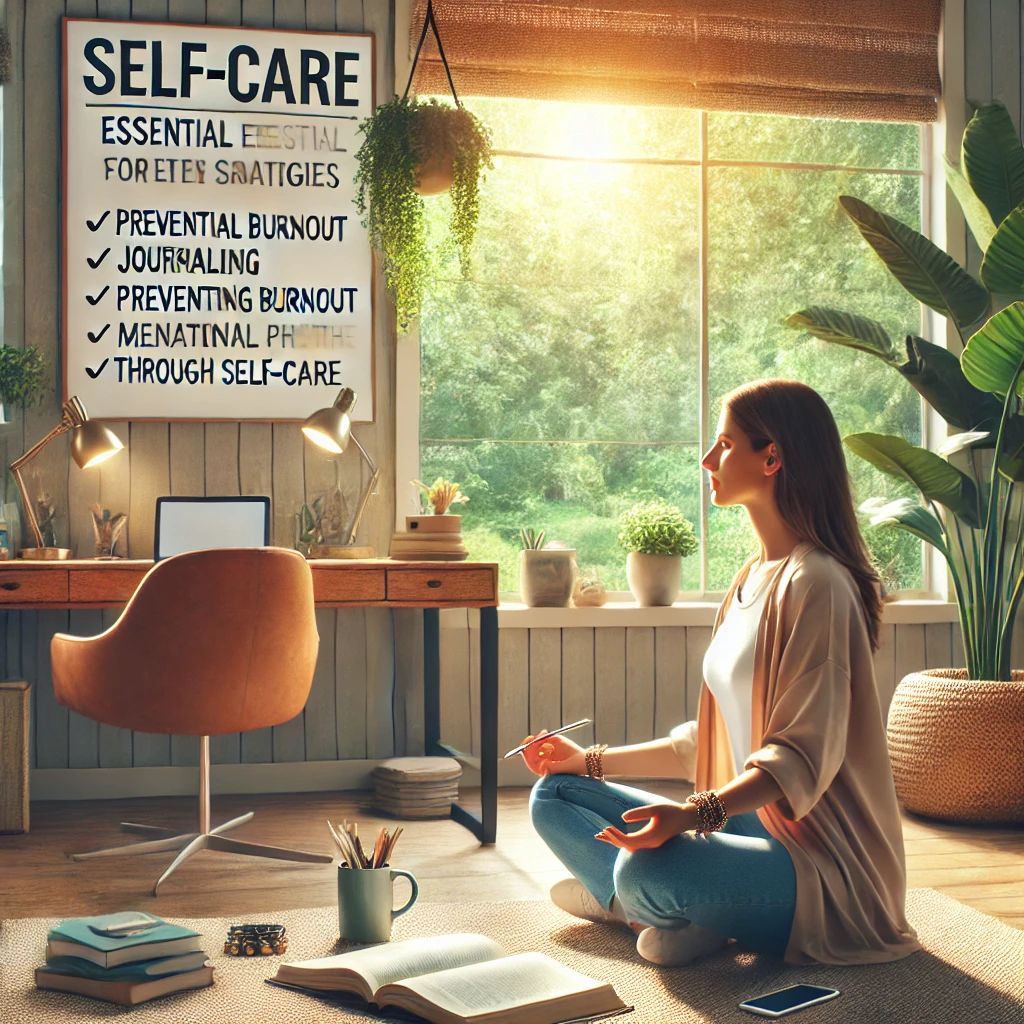
Counselors dedicate their lives to supporting others, often facing emotionally demanding situations daily. Given the nature of their work, self-care is not just important but essential for counselors to maintain their mental, emotional, and physical health. This guide explores effective self-care strategies for counselors to ensure they can continue to provide the best care for their clients while taking care of themselves.
The Importance of Self-Care for Counselors
Preventing Burnout
Counseling can be emotionally taxing, leading to burnout if self-care is neglected. Burnout can manifest as physical exhaustion, emotional fatigue, and a sense of detachment from work. Regular self-care practices help prevent burnout, allowing counselors to stay engaged and effective in their roles.
Maintaining Emotional Resilience
Counselors often absorb the emotional experiences of their clients, which can be draining. Self-care helps maintain emotional resilience, enabling counselors to process their own emotions and remain empathetic and present during sessions.
Promoting Physical Health
The demands of counseling work can sometimes lead to physical strain, particularly if counselors neglect exercise, sleep, or nutrition. Self-care practices promote physical health, ensuring counselors have the energy and vitality needed to support their clients.
Self-Care Strategies for Counselors
Physical Self-Care
Regular Exercise
Incorporating regular physical activity into your routine is crucial for reducing stress and maintaining energy levels. Aim for activities that you enjoy and that fit into your schedule, such as:
Balanced Nutrition
Eating a balanced diet rich in whole foods supports physical and mental health. Focus on:
Adequate Sleep
Quality sleep is essential for mental clarity and emotional balance. Aim for 7-9 hours of sleep each night, and establish a calming bedtime routine to ensure restful sleep.
Emotional and Mental Self-Care
Mindfulness and Meditation
Practicing mindfulness and meditation helps counselors manage stress and stay grounded. Even a few minutes of mindfulness practice each day can make a significant difference in emotional well-being.
Supervision and Peer Support
Regular supervision and peer support provide an outlet for discussing challenging cases and processing emotions. Engaging in professional discussions with peers or supervisors can offer new perspectives and alleviate the emotional burden of the work.
Setting Boundaries
Maintaining clear boundaries between work and personal life is vital for emotional health. This includes setting limits on working hours, avoiding taking work home, and ensuring time is dedicated to personal interests and relaxation.
Therapy for the Therapist
Counselors can benefit from therapy themselves. Engaging in therapy provides a safe space to explore personal emotions, receive support, and practice self-reflection.
Social and Professional Self-Care
Nurture Personal Relationships
Spending quality time with friends and family helps counselors maintain a sense of balance and connection. Engage in activities with loved ones that bring joy and relaxation.
Engage in Professional Development
Continuing education and professional development not only enhance skills but also invigorate counselors’ passion for their work. Attend workshops, seminars, or courses that interest you and contribute to your growth.
Creative and Spiritual Self-Care
Creative Expression
Engaging in creative activities such as painting, writing, or playing a musical instrument can be a powerful outlet for emotional expression and stress relief.
Spiritual Practices
For those who find comfort in spirituality, engaging in spiritual practices such as meditation, prayer, or spending time in nature can offer solace and a sense of purpose.
Practical Tips for Incorporating Self-Care
Schedule Self-Care
Just as you would schedule client sessions, make self-care a non-negotiable part of your daily or weekly routine. Block out time in your calendar for exercise, hobbies, or relaxation.
Practice Mindful Transitions
After a counseling session, take a few moments to breathe deeply and clear your mind before moving on to the next task. This helps prevent emotional carryover from one session to another.
Use Technology Mindfully
Limit the use of technology outside work hours, especially social media, which can contribute to stress and information overload. Instead, engage in activities that recharge you.
Conclusion
Self-care is essential for counselors to maintain their well-being and continue providing effective support to their clients. By incorporating physical, emotional, mental, social, creative, and spiritual self-care practices into their daily lives, counselors can prevent burnout, maintain emotional resilience, and enhance their overall quality of life. Remember, taking care of yourself is not just beneficial for you, but it also ensures that you can be the best possible support for those you serve.


